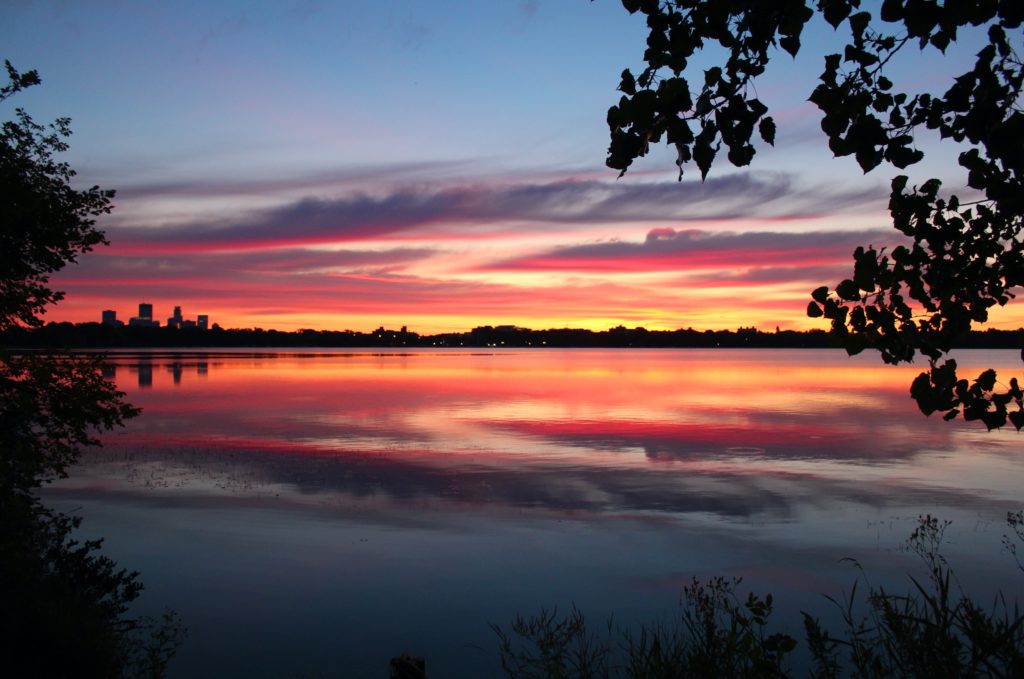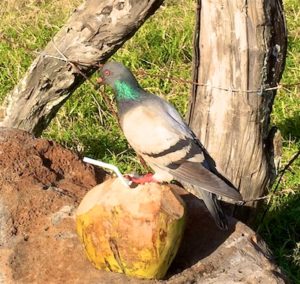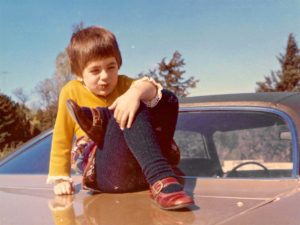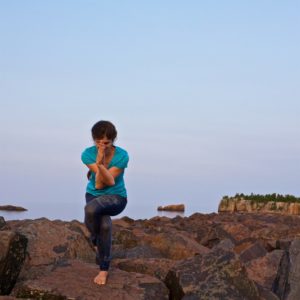
I’ve been carefully observing how my teachers, mentors and colleagues are responding to the current political situation. A few have chosen to remain silent but most have spoken out in outrage and despair about the events of the past week. The ones that I feel most aligned with are asking themselves about how they can contribute in their role as an expert in body-centered practices to work towards positive change beyond the important work of helping individuals. I align myself with those teachers and below you will find some of their thoughts and suggestions.
I personally always return to the words of Rabbi Hillel, a contemporary of Jesus who is highly revered in Jewish traditions and beyond:
If I am not for myself, who will be for me?
If I am only for myself, what am I?
And if not now, when?
I understand this to mean:
We need to take care of ourselves.
We need to take care of others.
We need to do both now.
Taking care of others and taking care of ourselves is intertwined. The oft-quoted biblical verse, “Love your neighbor as yourself,” (Leviticus 19:18) implies that you need to be able to love yourself to love others.
In this spirit I will continue to teach movement classes. I will continue to do my best to create a safe and welcoming environment even though I know that not all will feel safe and welcome. I will do my best to make my array of classes physically accessible and interesting to all with the acknowledgment that one class does not fit all. I will continue to support other teachers I know to do the same.
I am grateful for those of you who resonate with my approach and have found your way to my classes.
I understand that how we live in our bodies is culturally learned and experienced. How we engage with and react to bodies that are different than our own is also culturally based. We often hold unconscious or unspoken assumptions that may not match our conscious values. Once we understand the assumptions that we have received about our own bodies and others, we have the option to change them and realign with our values.
I see many people who have difficult relationships with their body. This includes body dysmorphia and physical pain. I believe that much of the physical and emotional pain and distress that individuals experience in and with their body is a reflection of systemic problems in our society. This is a big topic and I hope to go into more detail later. But for now, I’ll just share that our lack of healthy movement, our difficulty with weight and nutrition and the racism that is rampant in our society is all part of an interrelated hierarchical system. Finding ways to step in and cultivate change on individual and communal levels is daunting.
I see breath as a first step. Yogis have known it for centuries and recent scientific studies are proving through evidence-based research that breathing practices are a powerful way to take care of one’s own body.
When we breathe, we also share our breath with each other and all life.
Below are some words and resources from teachers and friends:
Myra Rucker
Yoga instructor Myra Rucker shared some of her thoughts, including a moving section about breath in a recent blog post. Myra is originally from Houston and has lived in Minneapolis for many years. You can read the full piece dated May 30, 2020 and see her teaching schedule here.
Where to begin?
Like me, you may be reeling from the events of this past week, month, year, decade, lifetime. You might be hopeful about where we go next, cautiously optimistic, unusually pessimistic, or completely numb. You might be feeling a giant ball of emotion which sometimes spills out and sometimes just churns around in your stomach… until the next time it comes out. Or maybe you are safely, and blessedly, removed from it all.For anyone slightly (or greatly) confused, let me break this down for you: I’m a Black woman from Houston, Texas who teaches yoga in the Twin Cities (Minnesota). This week, George Floyd, a Black man from Houston, Texas was killed here in Minneapolis. (For those of you who have read the last few months of posts, George Floyd grew up in the neighborhood where my grandfather had his bars and he was killed (Monday, May 25, 2020) on a corner where he and I quite possibly crossed paths (on Saturday, September 16, 2017). His death has sparked protest around the country, and some of those protests have turned violent. At least one additional person has died in the last few days during the protests. Millions and millions of dollars have been lost as local and big box businesses have burned to the ground and/or sustained damages that make it unlikely they will re-open. All of this is happening after a racially-charged death earlier this month (in the Saint Paul); after several years of racially-charged police-related deaths in the country; and during a global pandemic that has shut down much of the world over the last few months.
People are hurt, angry, confused, and fed up. People are also hurt, angry, confused, and scared. At least one international correspondent has said she has never seen anything like what’s going on here in all her years of covering protests and civil unrest all over the world. So, the question becomes, “Where do we go from here?”
As friends and family call and text to check on those of us that are here – and as we call and text to check on each – I have struggled with what to say to my students. We are largely impacted in very different ways because of our very different circumstances and backgrounds. However, because this is not our (the USA’s) first racially-charged rodeo, we have to face up to the fact that amidst all the possible aftermaths there are two very real probable outcomes:
(a) nothing-to-very little changes on a systematic level, or
(b) everything (or almost) everything changes.
For the latter to be even a remote possibility we have to heal and move forward together – something that may seem impossible when we are so far apart.So, back to a variation of that first question: Where do we begin?
First, keep breathing. Like Eric Garner, who was killed in New York in July of 2014, one of the last things George Floyd was able to say was, “I can’t breathe.” Breathing is connected to our autonomic nervous system; it is something that happens to us, and also something we can engage or control. Situations that activate our sympathetic nervous system (making us want to fight, flee, freeze, or collapse) also create a breathe pattern that is not sustainable over long periods of time. Unfortunately, we are living in a time where are sympathetic nervous system is constantly activated – sometimes to the point of being over stimulated – and we develop a habit of bad breathing. Don’t take this next breath for granted. Never take your breath, which is a symbol of your life, for granted. Take the deepest breath you’ve taken all day, every day. Then follow it with another… and another. Make it a habit, a practice, to very deliberately and intentionally breathe. Do it for yourself and those you love. Do it, also, in honor of those who “can’t breathe.”
Mind Body Solutions Staff
Mind Body Solutions is a non-profit organization whose mission is to transform trauma, loss and disability into hope and potential by awakening the connection between mind and body. They are based in the Minneapolis metropolitan area.
The death of George Floyd should not have happened. Period. His death is not the only one. There have been many. It hurts…bad. Suffering, outrage, determination, and hope are running abound within our culture.
Like many of you, we at Mind Body Solutions are standing in active solidarity with the pursuit of justice, with the unwillingness to remain quiet, and with the realization that there is a lot of work to do.
For us, this is a time to be unafraid of the suffering of others and how they express it. It is a time to listen, to take in, and to not shy away from feeling. Did you know that George and his brothers made each other banana and mayonnaise sandwiches, that they grew up without a washer and dryer, that when they washed their socks and underwear in the sink and forgot to hang them on the water heater, they dried them in the oven? Did you know that George’s mom fed all the neighborhood kids? Although the underlying causes of George Floyd’s death are symptoms of the systemic injustice inherent to our criminal justice system, trauma is always personal. In the work that lies ahead, we must never forget. George Floyd’s particular life mattered.
At Mind Body Solutions, we have a lot of learning ahead. We have to ask ourselves uncomfortable questions. We need to transform our thinking and our actions. We need to listen to more experienced racial thought leaders and confront our unintentional complicity in racial injustice. We also need to support the profound work of others on these issues. We promise that we can and will do this. We promise to confront and evolve.
But today is still about a “gentle giant of a man who always had your back.”
*They received some criticism for using the phrase, “George Floyd’s life matters and made an apology and explanation You can read about it here.
Katy Bowman
Katy Bowman of NutritiousMovement.com. speaks often about how our movement deficits are a reflection of overall societal injustices.
I am certified through her organization as a Restorative Exercise Specialist (RES). This is a piece she wrote to her certified teachers.
For our RES who are persons of color, or have family that are persons of color, and especially people who are Black, I am holding space for any feelings or needs you might have right now. I know an exercise company is a small portion of a life, but we are here for you in whatever way you need us to be.
For our RES-family that are white, I’m taking inspiration from my friend who has a tattoo on his throat that says “SPEAK PLAINLY”:
I began personal, deliberate antiracism work a few years ago, and I believe all members of a dominant culture should do work in this area. When we talk about pelvic-floor issues we identify “internal work” (soft-tissue work done inside the vagina). Sometimes internal work feels scary. It can be physically uncomfortable, but it can also bring about improvement and change in how you live and move going forward.
Similarly, antiracism work is done deep inside, can feel scary, and is physically uncomfortable, but it needs to be done by the white people controlling, usually unconsciously, the framework for everyone else’s lives. Just like we control the movement possibilities for our children as they grow, many times unconsciously, so do we all participate in an invisible structure that affects the freedom of so many others.
Roland Denzl
Roland and his wife Galina are health and wellness coaches who teach how changing small habits can lead to big and long-lasting change. Galina also specializes in working with trauma.
They provide numerous online resources and are currently offering a free course called, “Unstress Your Body.”
For a long time I thought it wasn’t my place as a health coach to bring race into the discussion.
I was raised with parents who told me to be colorblind, which I think was well-intentioned, but no longer enough.
Also, I was afraid to say something wrong, but it’s time to take my own coaching advice — Don’t let perfect stand in the way of progress.
I’m sure I’ll say things wrong at times, but I’m learning, and part of that is trying, failing, and learning from it.
There’s no way for me to know the makeup of our email lists. I used to say it didn’t matter, but the truth is that it does. It’s a reflection of who we’re reaching with the messages we send and project to the world.
While I don’t KNOW our numbers, the truth is I have my suspicions about what the percentages are, and we want to do better.
I’m a health coach and a nutritionist and Galina is a trauma specialist, helping people suffering emotionally and physically through somatic experiencing and healing movement.
While we’ve always considered our work to be inclusive and available to anyone and everyone, that’s a technicality. To most people, having a coach is a privilege, and we want to acknowledge that.We don’t yet know how we can make our work both more accessible and be more active in supporting marginalized communities, but we’re working on it.
I’m seeing that phrase, “do better,” on social media, and that’s what Galina and I both are going to be doing, in our business and in our personal lives.
We are not experts in this. We are learning, too, so instead of giving yet more advice from a privileged perspective, we’re sharing the Google Doc list below.
It’s filled with resources for those, like us, who want to support the anti-racism movement. This is the link.
“What can I do?”
Do something today and every day to help society make progress on this.
- Donate time or money to resources on the list above.
- Spend money and eat at black-owned businesses.
- Share black artists, coaches, trainers, and others with the people in your life and community.
- Don’t make this about you. Share their messages and work because it’s valuable.
- Social media gets a bad rap, but it also has so many ways to spread the word. Use them to let people know about the people you support.
It’s okay and normal to feel bad. I do. I haven’t done enough, but I know I can do better.
If you are personally struggling with stress, anxiety, or guilt, please do something to help today. And, if you need help with coping these days, that’s understandable, too.
If you’re already a student in Unstress Your Body, I urge you to spend some time there.
If you haven’t enrolled, you can join for free right here: Unstress Your Body.
Along with being connected to these teachers and organizations, I am proud to have served for many years as a Spiritual Leader and educator at Kehilla Community Synagogue that includes in its mission, “to heal and repair the world, by showing compassion to all, and actively working towards social justice, peace and environmental sanity.
Thank you for reading this.


